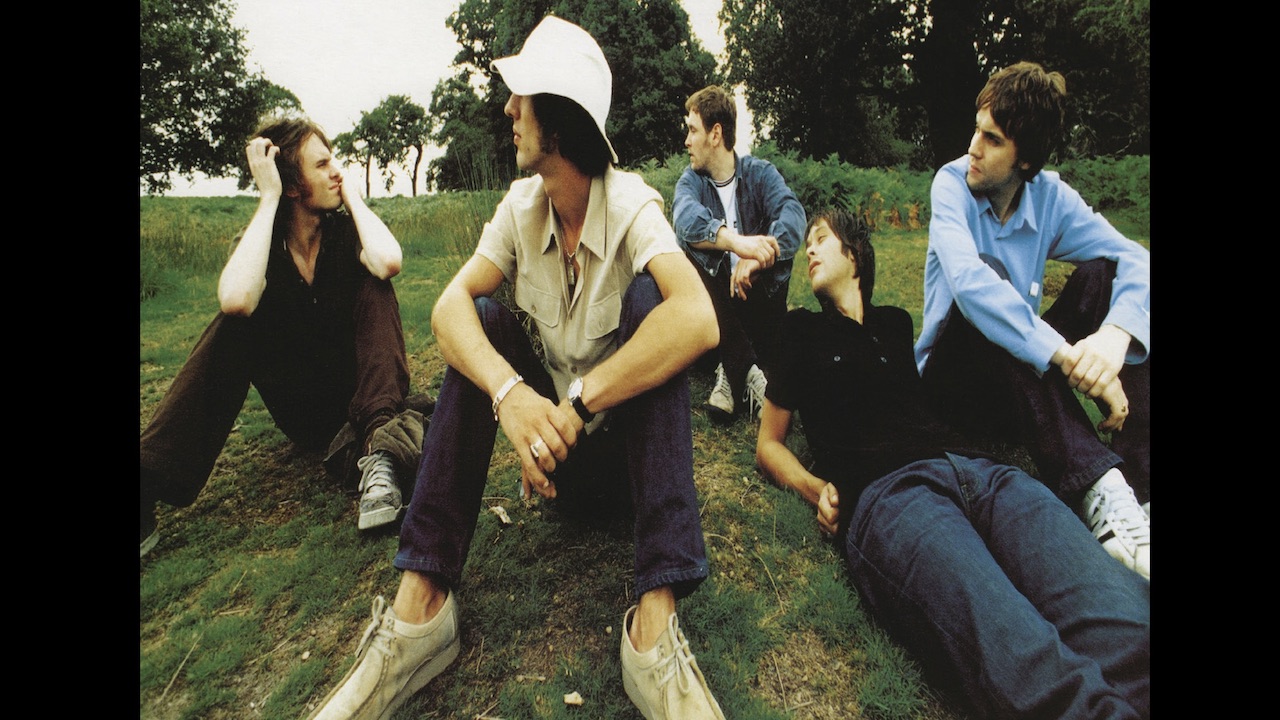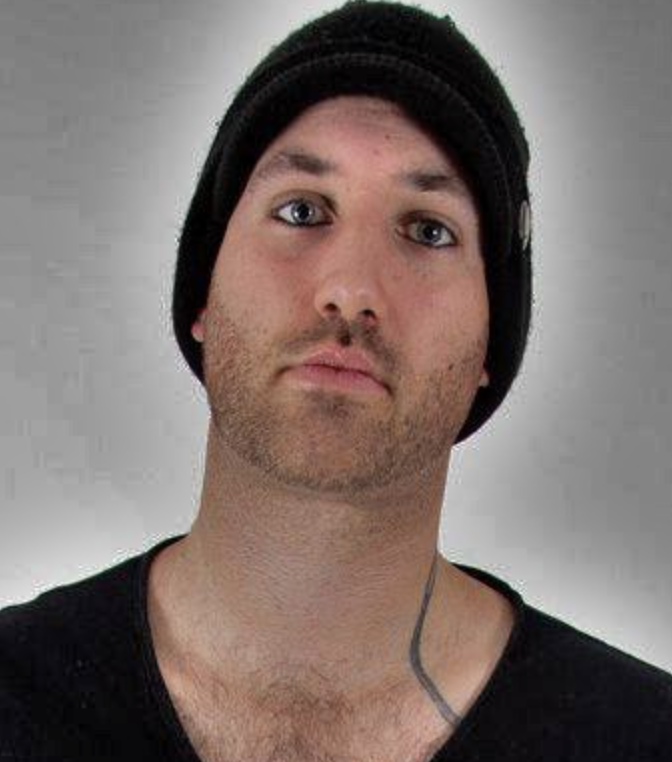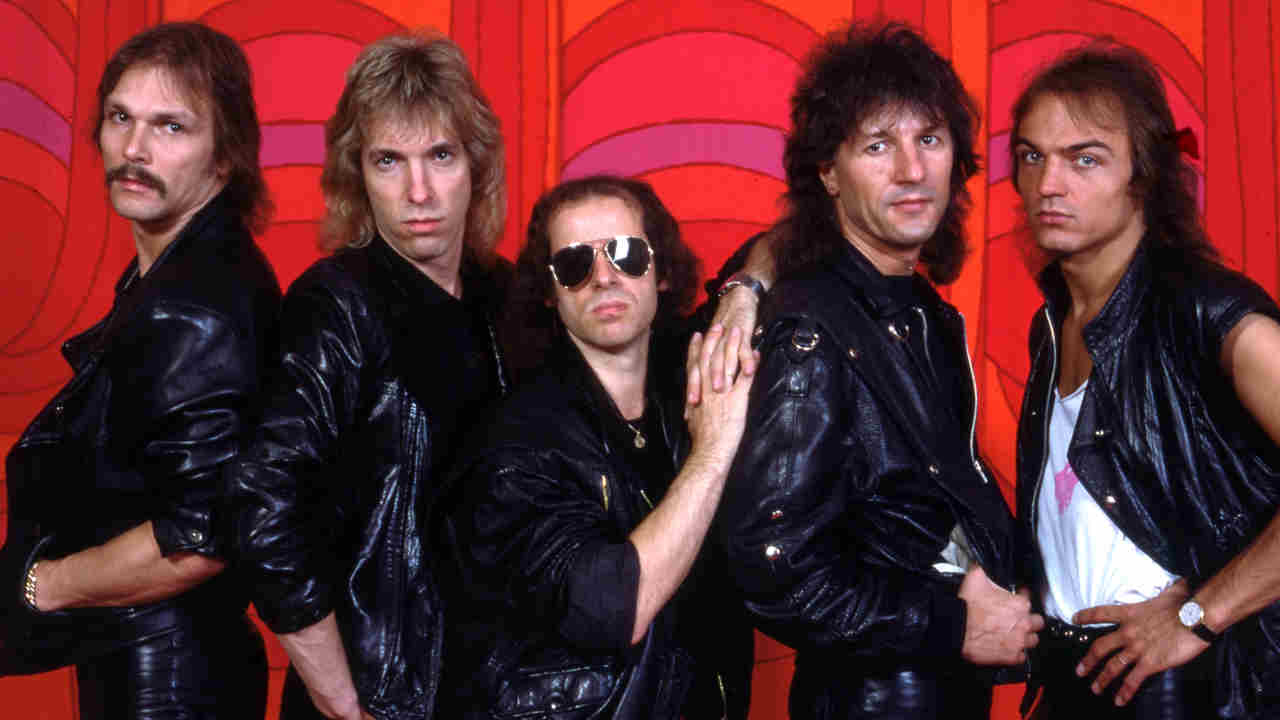The Verve's Urban Hymns at 25: "a record of phenomenal depth, honesty and complexity"
Released on September 29, 1997, The Verve's masterpiece Urban Hymns is a BritPop-era album like no other

By the mid-'90s, Brit-Pop was the dominant force in the UK’s music scene, its main players fixtures in the charts, the tabloids, and the popular imagination.
This game-changing cultural shift initially rolled out without The Verve. Formed in the aftermath of the second summer of love and the mania surrounding The Stone Roses, the Wigan-based band had taken the psychedelic dance rock of the Roses and melded it with the strutting, preening rock 'n' roll of prime Stones and Zeppelin. In guitarist Nick McCabe they had their own hybrid of Johnny Marr and Jimmy Page, with frontman Richard Ashcroft an explosive amalgam of John Lennon, Mick Jagger, charisma and cheekbones. Unlike so many of their indie peers, The Verve looked and sounded like rock stars.
But this, however, didn’t immediately translate into album sales. The band's 1993 debut, A Storm In Heaven, peaked at number 27 in the UK album chart, and its follow-up, A Northern Soul, released in June '95, only spent three weeks in the top 40, peaking at number 13. Internal feuding would cause The Verve to split in October 1995, the same month Oasis released (What’s the Story) Morning Glory?, one of Brit-Pop's most obvious potential superstars exiting stage left at the exact moment the scene was about to blow up, with the album that would become its commercial peak.
The split hit Richard Ashcroft hard. Despite being the instigator, he was filled with regret of what might have been. Hearing A Northern Soul’s third single History on Radio One just after the split he told Music Saves in 1998 that he was “more choked than I've ever been in my life... I was sure that if we'd toured after History we'd have taken off."
Ashcroft drifted between friends' floors and hotel rooms around the country to try to find peace with his decision. He would later recall this soul-searching period as the most creative of his life, and it was during this time that many of the songs that would go on to become Urban Hymns were first sketched out.
It would not be long before Ashcroft reunited with bassist Simon Jones and drummer Nick Salisbury. Although they didn’t play any gigs, the trio did add guitarist Simon Tong to their ranks and began to work on the new material, entering the studio with A Storm In Heaven producer John Leckie in late 1996.
For all his eagerness to make up for lost time, Ashcroft came to realise that something was missing from the new Verve recordings. The session was scrapped, and the band started afresh, hiring Killing Joke bassist Youth and Chris Potter and booking time at Olympic Studios in the hope that this reboot would sort the problem. It didn’t. Even after the change of personnel on the sessions, it became clear to Ashcroft that without Nick McCabe, The Verve's new songs didn't sound like The Verve.
“I got to the point where nothing other than The Verve would do for me,” said Ashcroft. “I love Nick McCabe, and I never want to be in a band if he’s not playing guitar. I hope he feels the same about me.”
The latest news, features and interviews direct to your inbox, from the global home of alternative music.
Ashcroft asked McCabe to rejoin the band, midway through the recording of the album: the guitarist agreed, adding his own unique flourishes to the songs crafted in his absence. “Everything he did just sounded right,” said Chris Potter.
Re-energised, the quintet recorded six more songs, completing what would be their comeback album.
One song stood out from the pack. Ashcroft had heard the Andrew Oldham Orchestra version of The Rolling Stones 1965 song The Last Time and believed he could be “turned into something outrageous”, as he told Rolling Stone. Sampling and looping four bars of the orchestral version, he then layered it with his band’s instrumental takes and his own vocals, channelling the work of Italian film composer Ennio Morricone and early hip-hop. The result was a true masterpiece; the album's first single, Bittersweet Symphony.
Released on June 16 1997, the single entered the UK singles chart at number 2 and immediately turned The Verve into the superstars they had always threatened to be. It was, and remains, one of the finest pop songs of all time. Rarely have strings sounded so gorgeously soaring, with the rest of The Verve creating a kaleidoscopic, psychedelic, rhythmical pattern to juxtapose the majesty of the orchestration.
Then there is Ashcroft, the epitome of cool, his slinky, swaggering, heart on sleeve vocal and striking lyrics - “You're a slave to money, then you die” - grabbing you vice-like round the throat, demanding your attention, flooding your brain and refusing to leave. The video for the song completed the perfect storm of an iconic pop song, Ashcroft balling down a British high street, relentlessly staring the camera down, untouched and unaffected by his surroundings. It was one of those rare occasions where you hear a piece of music and just have to sit back and marvel.
The release of Urban Hymns was prefaced by a second single, The Drugs Don’t Work, another fantastic, heartbreaking, lament of a song. Released on September 1, 1997, the day after the death of Princess Diana, the sombre, aching timbre of the song caught the mood of the public, and shot straight to the top of the UK singles chart.
It meant that when Urban Hymns was released on September 29, The Verve couldn’t have been a hotter proposition. The album entered the UK charts at number one, and stayed there for five consecutive weeks, remaining in top five after relinquishing the top spot, before hitting number one for a further six weeks at the start of 1998.
If the release of Radiohead’s Ok Computer signalled the end of the Brit-Pop era, The Verve too surely would have had a say in its demise. On the surface, the influences of The Stone Roses and The Beatles may have been the same as much of Brit-Pop, but Urban Hymns is a record of such phenomenal dexterity, depth, honesty and complexity that Stella-swigging, bucket hat wearing, chirpy Brit-Pop couldn’t stand a chance next to it.
It’s almost as though Ashcroft, the finest rock star British indie had produced, was so disgruntled at not being part of the initial Brit-Pop boom that he returned purely to destroy it.
Be it the modern jazz exploration of This Time, the swirling, elongated jams of The Rolling People or Catching the Butterfly, that have far more to do with early-Pink Floyd or Hendrix at his most expansive than anything Creation Records were putting out, to Space and Time, Sonnet and Lucky Man taking The Beatles' collages of sound and simplicity and managing to evoke similar levels of pop perfection, Urban Hymns is a true masterpiece.
It won the Best Album category at the Brits in 1998 - with The Verve also taking home the award for Best Band - and has been certified 11 times Platinum in the UK, with sales of over 3 million, making it the 19th best-selling album in the history of the United Kingdom.
The Verve were finally the rockstars that they were so obviously, so clearly, born to be. Their resurrection may have helped to kill off Brit-Pop, but it also destroyed them. The reasons were, again, inter-band tensions: rumours of fist fights were common in the press, and McCabe, such a crucial part of making The Verve work, left citing pressures of the touring lifestyle as his reasoning. After a pair of lukewarmly received headline shows at the V Festival that summer, the band played their final show at Slane Castle in Ireland on August 29, 1998.
Their moment in the spotlight was actually remarkably fleeting for a band that have become such a staple in conversations about the finest British artists of all time. And, although their early albums were excellent, you can’t help feel that were it not for this record, that period of soul searching, and this final moment of inspiration where everything came right, the way people talk about The Verve today would be very different.
They burned briefly, but on Urban Hymns The Verve burned so, so bright. A quarter of a century later, it remains an album of breathtaking quality, and a richly deserved staple of modern British culture.

Stephen joined the Louder team as a co-host of the Metal Hammer Podcast in late 2011, eventually becoming a regular contributor to the magazine. He has since written hundreds of articles for Metal Hammer, Classic Rock and Louder, specialising in punk, hardcore and 90s metal. He also presents the Trve. Cvlt. Pop! podcast with Gaz Jones and makes regular appearances on the Bangers And Most podcast.
